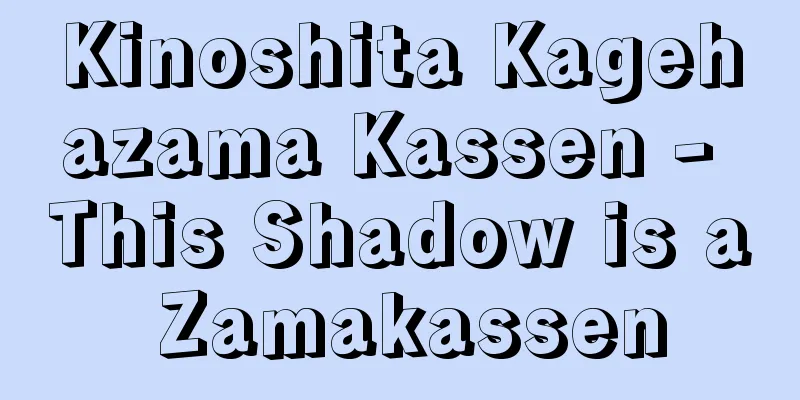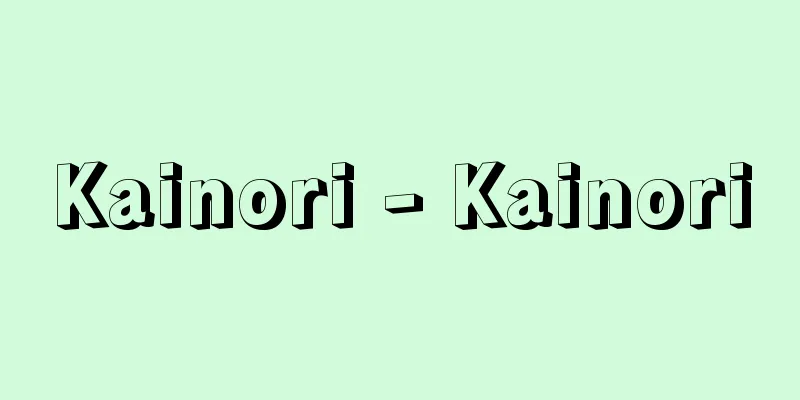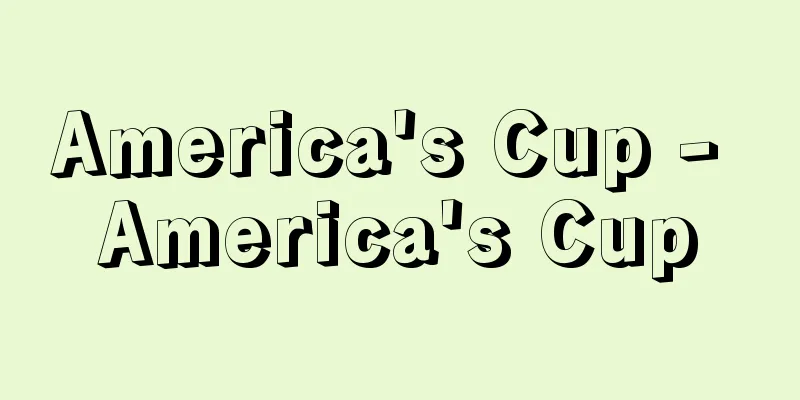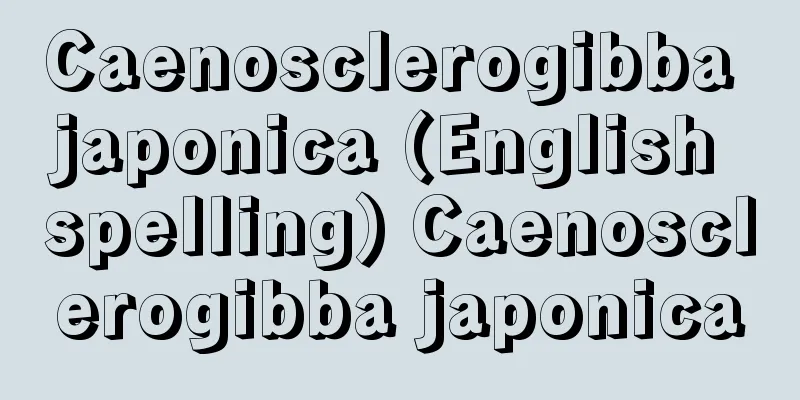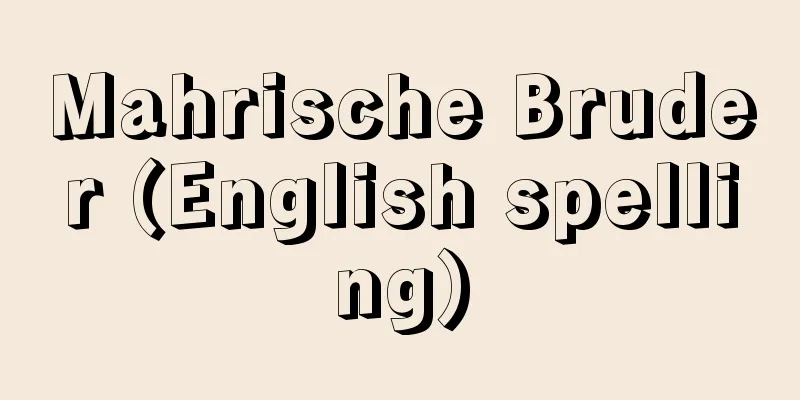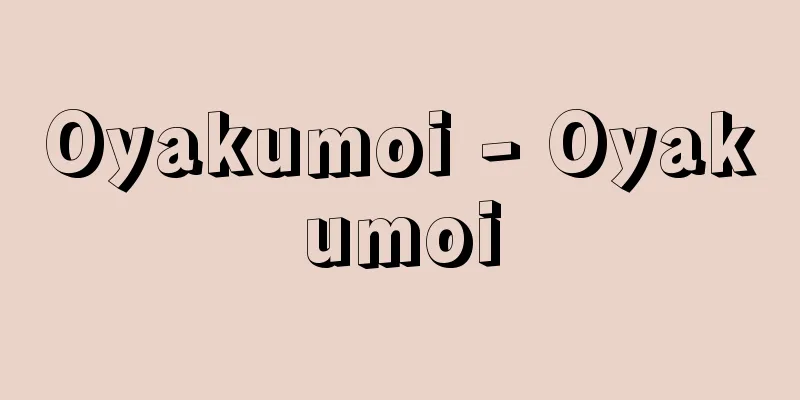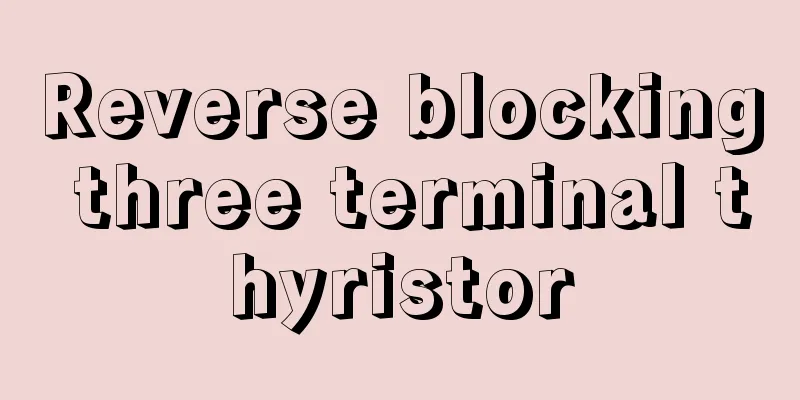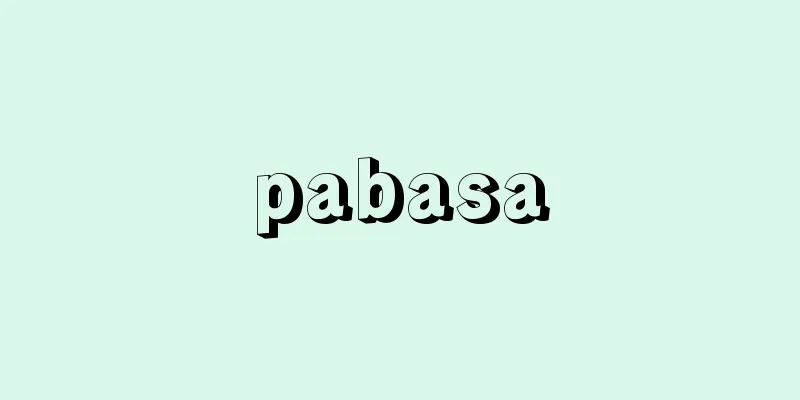Freedom of Religion
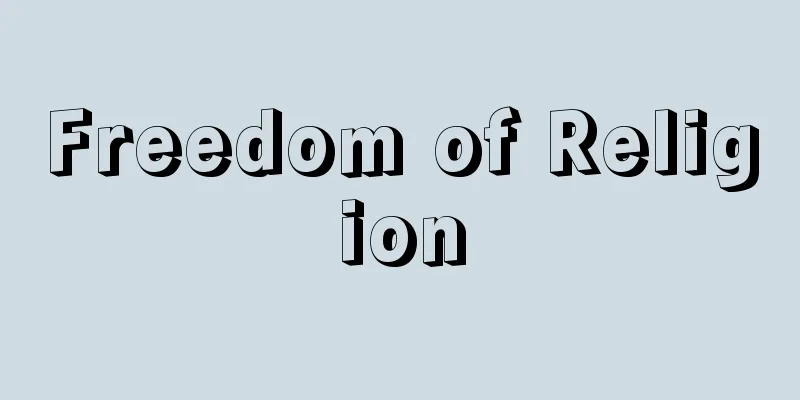
|
Freedom to believe in a religion and to practice religious practices. Also called religious freedom. Freedom of religion played a major role in establishing modern spiritual freedom by liberating the human spirit from religious authority. Furthermore, freedom of religion is the source of spiritual freedom as it relates to the salvation of the human soul, and has been guaranteed in modern human rights declarations. The Meiji Constitution also guaranteed freedom of religion, but under the same constitution, Shrine Shinto, which worships the ancestors of the Emperor as gods, was essentially given preferential treatment as the state religion based on the interpretation that "shrines are not religions," and as a result, freedom of religion was restricted. Furthermore, the doctrine of Shinto came to play a role as the spiritual pillar of the rise of militarism. As a result of this, after the Second World War, GHQ (General Headquarters for the Allied Powers) issued the "Shinto Directive" which separated the state and Shinto. In response to this, the Constitution of Japan stipulated freedom of religion (Article 20, Paragraphs 1 and 2) and, in order to effectively guarantee this freedom, adopted the principle of strict separation of religion and state (Article 20, Paragraphs 1 and 3, Article 89). The freedom of religion guaranteed by the Constitution of Japan primarily consists of the freedom to believe in the religion one wishes, to engage in religious activities such as proselytizing and propaganda, and to establish religious organizations. The issue of the limits of this freedom of religion came to be debated in relation to the Aum Shinrikyo incident. In 1994-95 (Heisei 6-7), the religious corporation Aum Shinrikyo produced and used the highly toxic gas sarin, killing many people (the Matsumoto Sarin Gas Attack and the Tokyo Subway Sarin Gas Attack), and the governor of Tokyo and others requested the court to dissolve the corporation under Article 81 of the Religious Corporations Law, and the Director-General of the Public Security Intelligence Agency requested the Public Security Examination Commission to designate the corporation for dissolution under Article 7 of the Subversive Activities Prevention Law, leading to a debate on whether these measures violated religious freedom. In the former case, the Supreme Court ruled that the dissolution system stipulated in the Religious Corporations Law and the dissolution order in this case based on that system did not violate Article 20, Paragraph 1 of the Constitution, and the corporation was ordered to dissolve, but the latter request for designation of dissolution based on the Subversive Activities Prevention Law was dismissed by the Public Security Examination Commission. [Akimichi Iwama] Separation of church and stateAfter the Second World War, the principle of separation of religion and state was the subject of fierce legal battles. The principle of separation of religion and state requires the state to be neutral toward all religions. It is also called the principle of secular state. The relationship between the state and religion in countries where religious freedom is guaranteed is not uniform. Some countries (such as the United States) have adopted a strict separation principle, while others (such as the United Kingdom) have adopted a state religion system. The Constitution of Japan prohibits religious activities by the state and its organs (Article 20, paragraph 3) and prohibits the expenditure of public funds on religious organizations (Article 89), thus establishing a strict separation principle. However, even if there is strict separation, it is practically impossible to completely eliminate any relationship between the state and religion, so the question is to what extent the Constitution prohibits such interaction. Case law today adopts the purpose and effect standard as the standard for determining the extent of such constitutionally prohibited interaction. In other words, this standard states that the actions of the state and its organs are not permitted as they violate the principle of separation of religion and state when their involvement with religion "exceeds what is considered appropriate," that is, when their "purpose has religious significance and its effect is to assist, encourage, promote, or oppress or interfere with religion." In the past, in cases where violations of the principle of separation of church and state were challenged in court, such as (1) a case in which a city hosted a Shinto-style groundbreaking ceremony for the construction of a city gymnasium (Tsu Groundbreaking Ceremony Lawsuit), (2) a case in which a city relocated a war memorial owned by a bereaved family association at public expense (Minoh City War Memorial Lawsuit), and (3) a case in which the Self-Defense Forces were involved in the enshrinement of fallen Self-Defense Force personnel at a Gokoku Shrine (Fallen Self-Defense Force Personnel Enshrinement Lawsuit), some lower court rulings applied the purpose and effect standard strictly and found the laws unconstitutional. However, the Supreme Court has applied the same standard loosely in each case and ruled them constitutional. Other examples of cases in which violations of the principle of separation of religion and state were discussed include (4) the expenditure of public funds for the Daijosai ceremony held in 1990 (Heisei 2), (5) the Prime Minister's official visit to Yasukuni Shrine, and (6) the expenditure of tamagushi offerings by local governments on the occasion of the spring and autumn festivals at Yasukuni Shrine (tamagushi offering lawsuits). Applying the purpose and effect standard, lower courts have expressed doubts about the constitutionality of (4) (Osaka High Court). Also, while there has been almost unanimous doubt about the constitutionality of (5), there have been some cases in which (6) was deemed constitutional on the grounds that it was a "social ritual" to commemorate the war dead (Takamatsu High Court, Morioka District Court) and some cases which deemed it unconstitutional (Sendai High Court, Matsuyama District Court). In this context, on April 2, 1997, the Supreme Court made a landmark decision, applying the purpose and effect standard, ruling that Ehime Prefecture's expenditures of offerings to Yasukuni Shrine, such as offerings of sacred offerings, were unconstitutional because they "exceeded what was considered reasonable." This ruling can be said to have put a certain brake on the trend of gradually strengthening the connection between politics and Yasukuni Shrine. [Akimichi Iwama] [Reference item] |Source: Shogakukan Encyclopedia Nipponica About Encyclopedia Nipponica Information | Legend |
|
宗教を信仰し、宗教上の行為を行う自由。宗教の自由ともいう。信教の自由は、宗教的権威から人間精神を解放することにより、近代の精神的自由の確立に大きな役割を果たした。また、信教の自由は、人間の魂の救済にかかわる自由として、精神的自由の源をなし、近代以来の人権宣言で保障されてきた。明治憲法も、信教の自由を保障していたが、同憲法のもとでは、「神社は宗教にあらず」という解釈のもとに、天皇の祖先を神として祀(まつ)る神社神道は、実質上国教として優遇され、この結果、信教の自由は制限された。また、神道の教義は、軍国主義の台頭とともに、その精神的支柱としての役割を果たすことになった。 こうした経緯から、第二次世界大戦後、GHQ(連合国総司令部)は、国家と神道の分離を内容とする「神道指令」を発し、これを受けて、日本国憲法は、信教の自由(20条1項・2項)を定め、また、同自由を実効的に保障するために、厳格な政教分離の原則(20条1項・3項、89条)を採用した。日本国憲法が保障する信教の自由は、自己の欲する宗教を信仰し、布教・宣伝等の宗教的行為を行い、宗教団体を設立する自由、を主たる内容とする。こうした信教の自由の限界の問題は、オウム真理教事件に関連して論議されることになった。すなわち、1994~95年(平成6~7)に、宗教法人であったオウム真理教が猛毒ガスであるサリンを生成・使用し、多くの人命を殺傷(松本サリン事件、地下鉄サリン事件)したことなどのために、都知事らにより、宗教法人法81条に基づき、裁判所に対して同法人の解散請求がなされたほか、公安調査庁長官により、公安審査委員会に対して、破壊活動防止法7条所定の解散指定の請求がなされ、これらの措置が信教の自由を侵害しないか否かが論議されることになったのである。そして、前者については、最高裁が宗教法人法が定める解散制度及びそれに基づく本件解散命令は憲法20条第1項に反しない旨判示し、同法人に対して解散が命ぜられたが、後者の破防法に基づく解散指定の請求については、公安審査委員会により棄却されるに至った。 [岩間昭道] 政教分離の原則第二次世界大戦後、裁判で激しく争われてきたのは、政教分離の原則をめぐってである。政教分離の原則とは、国家があらゆる宗教に対して原則として中立的立場に立つことを要請する原則をいう。国家の非宗教性の原則ともいう。信教の自由が保障されている国のもとでの国家と宗教の関係は一様ではなく、厳格な分離原則を採用している国(アメリカ)のほか、国教制度を採用している国(イギリス)もある。日本国憲法は、国およびその機関による宗教的活動を禁止するほか(20条3項)、宗教団体に対する公金の支出を禁止し(89条)、厳格な分離原則を定めた。もっとも、厳格な分離といっても、国家と宗教とのかかわり合いをいっさい排することは実際上不可能である以上、問題は、憲法がどの程度のかかわり合いを禁じていると解すべきか、にある。判例は、今日、こうした憲法上禁じられたかかわり合いの程度を判断する基準として、目的・効果基準を採用している。すなわち、国およびその機関の行為は、宗教とのかかわり合いが「相当とされる限度を超える」場合、つまり、その「目的が宗教的意義をもち、その効果が宗教に対する援助、助長、促進又は圧迫、干渉等になるような」場合には、政教分離原則に反して許されない、とする基準である。 これまで、裁判で政教分離の原則違反が争われた事件、たとえば、(1)市の体育館の建設にあたって、市が神式の地鎮祭を主催した事件(津地鎮祭訴訟)、(2)遺族会所有の忠魂碑を市が公費で移設した事件(箕面(みのお)市忠魂碑訴訟)、(3)殉職自衛官の護国神社への合祀(ごうし)に際して、自衛隊が関与した事件(殉職自衛官合祀訴訟)において、下級裁判所の判決のなかには、目的・効果基準を厳格に適用して、違憲とした例もみられた。しかし、最高裁判所は、いずれの場合にも、同基準を緩やかに適用して、合憲と判示してきた。また、このほか、政教分離の原則違反が論議された例として、(4)1990年(平成2)に行われた大嘗祭(だいじょうさい)に対する公費の支出、(5)内閣総理大臣の靖国(やすくに)神社公式参拝、(6)靖国神社の春秋例大祭に際しての地方自治体による玉串(たまぐし)料の支出(玉串料訴訟)などがあるが、下級裁判所は目的・効果基準を適用して、(4)について、違憲の疑いを表明した例(大阪高裁)があり、また、(5)については、ほぼ一致して違憲の疑いを表明してきたのに対して、(6)については、戦没者の慰霊のための「社交的儀礼」だとして合憲とした例(高松高裁、盛岡地裁)と、違憲とした例(仙台高裁、松山地裁)に分かれていた。こうしたなかで、最高裁は1997年4月2日、目的・効果基準を適用して、愛媛県による靖国神社への玉串料等の支出は、「相当とされる限度を超えるもの」で違憲とするという画期的判断を示した。この判決は、政治と靖国神社との結びつきが除々に強められてきた動向に対して、一定の歯止めをかけたものだといえよう。 [岩間昭道] [参照項目] |出典 小学館 日本大百科全書(ニッポニカ)日本大百科全書(ニッポニカ)について 情報 | 凡例 |
Recommend
Nordkapp [Cape] - Nordkapp
It is located at 71°10'21" north latitude...
Oriental History
A field of historical research and education in Ja...
Mechanical brakes
A brake is a device that uses the force of fricti...
Indirect consumer finance - indirect consumer finance
...In the past, consumer finance had a social pol...
Glaser, DA
…A device that visually detects the tracks of cha...
Pseudonestor xanthophrys (English spelling)
...On the other hand, those that feed mainly on s...
Cucujus mniszechii (English spelling) Cucujus mniszechii
...The thoracic legs are well developed. The blue...
Heroic tales - Eiyuden
Plutarch's major work. It is a comparative bio...
Resident tax - juminzei
This is the combined term for prefectural inhabit...
Gundobad
…This incident is narrated in the German medieval...
Galvanizing
…In the past, it was also called galvanized steel...
Ofure - Touch
Laws and regulations promulgated widely by the sho...
Prey
A mystery novel by American author Ross Thomas (19...
Audubelle, JP - Audubelle
...The period from 1780 to 1830 was the golden ag...
Bethlen I.
...In addition, the Treaty of Trianon in 1920 saw...
